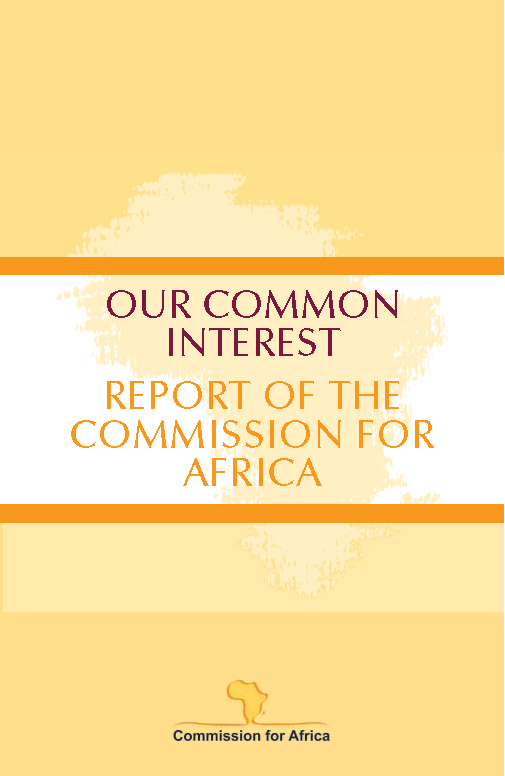AU-NEPAD (2005-7)
In 2005, the United Kingdom chaired both the G8 and Presidency of the European Union. A key theme during the year was upscaling activities to support delivery of the Millennium Development Goals with a core focus on accelerating progress for African nations. The outcome of the G8’s Gleneagles Summit published as the Glenagles Commuiqué includes a significant commitment to provide enhanced support for Africa.
In advance of the G8’s Gleneagles Summit the UK Government had supported the Commission for Africa. The Commission’s Report “Our Common Interest” highlighted a set of proposals designed to enhance the ability of African nations to enhance their own development, both independently and in partnership across the continent.
The Commission’s report highlighted the important roles that higher education, research and innovation would need to play to support development in Africa.

The African Union and NEPAD, the New Partnership for Africa’s Development were at the time jointly promoting regional debate about continental-level support for development. One of the main programmes being support by NEPAD related to the role of Science and Technology (and innovation) to drive economic and social development in the region. NEPAD published a working document “Africa’s Science and Technology: Consolidated Plan of Action” (CPA) in August 2005 as part of their process supporting the African Ministerial Council on Science and Technology (AMCOST).
The UK’s Department for International Development commissioned a project to support AU and NEPAD’s implementation of the CPA which I led from 2005 through to 2007. The project supported a process of review and stakeholder consultation to inform next steps to support continental science, technology and innovation.
A series of reports were produced and published in 2006 for consideration by AMCOST and donor partners. One of the main outcomes of the process was the recognition that any investment at regional-level needed to be supported by action by governments and business at national-level along with efforts to develop systems to promote links between higher education, research and application (the process of innovation). Whilst process with the continental initiatives has not yet reached the level of ambition set out in either the CPA or Commission for Africa, there has been more significant progress at national-level.
Project Reports